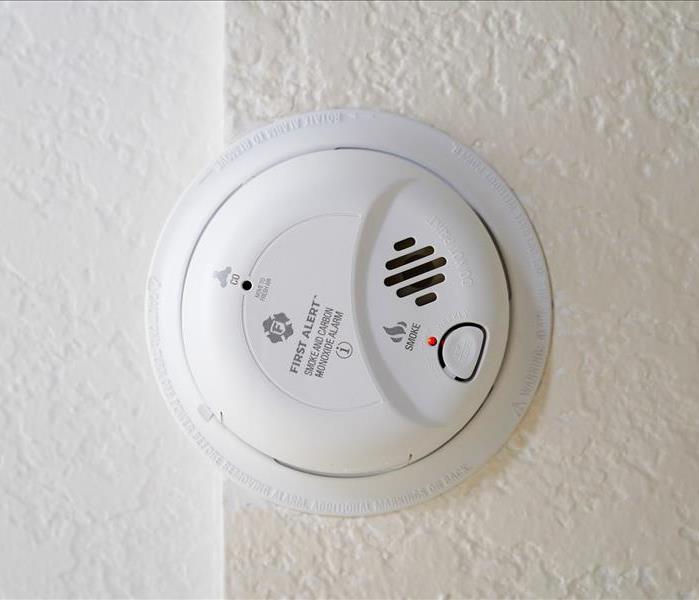Carbon Monoxide and Your Home.
11/19/2021 (Permalink)
 Your first line of defense is installing a Carbon monoxide detector that is battery-operated or has a battery backup.
Your first line of defense is installing a Carbon monoxide detector that is battery-operated or has a battery backup.
Carbon Monoxide and Your Home.
Fall has officially begun in the Upstate, the leaves are changing colors, the weather has cooled off, and now you need to turn on the heat in your home. But before you make your home warm and cozy this fall and winter, did you know you are at a higher risk of carbon monoxide poisoning during the colder months?
What is Carbon Monoxide (Co)?
Carbon monoxide or Co is a colorless, odorless gas that can cause illness and death. Carbon monoxide is created when natural gas, propane, gasoline, oil, kerosene, wood, or charcoal is burned. Cars, boats, gas engines, stoves, and heating systems also produce CO. Carbon monoxide from these sources can build up in enclosed or partially enclosed spaces. People and animals can be poisoned and die from breathing in Carbon monoxide. Below are several things you can do to prevent Carbon monoxide poisoning from happening to you or a member of your family.
You Can Prevent Carbon Monoxide Exposure
What You Should Do:
- Your first line of defense is installing a Carbon monoxide detector that is battery-operated or has a battery backup. Install these on the wall or ceiling in every bedroom, sleeping area, and common area, including your garage. If your home already has these, remember to change the batteries every six months. Daylight savings is the perfect time to change the batteries as you set your clocks for the time change.
- Have a qualified technician service your heating system, water heater, and any other gas, oil, or coal-burning appliances every year.
- Leave your home immediately and call 911 if your CO detector ever sounds. Seek prompt medical attention if you suspect CO poisoning.
What Not To Do:
- Never leave your car or truck running inside a garage attached to your house, even if you leave the garage door open. Never sit inside your running vehicle while it is in the garage.
- Don't use or burn anything in a stove or fireplace that isn’t vented correctly.
- Never heat your house with a gas oven. Instead, opt for space heaters.
- Don't use a generator, charcoal grill, camp stove, or other gasoline or charcoal-burning equipment inside your home, basement, garage, or outside less than 20 feet from a window, door, or vent.
What Does It Mean If My Carbon monoxide Alarm is Beeping?:
Your carbon monoxide alarm has different beep patterns to alert you whether there is an emergency or you need to replace the batteries or unit. It is essential you know the difference between the beeps so you can act accordingly.
- Four beeps and a pause: This means there is carbon monoxide in your home. You need to seek fresh air immediately. Exit your home and call 911.
- One beep every minute: This means the alarm has low batteries, and you need to replace them.
- Five beeps every minute: Your alarm has reached the end of its life. You need to replace the unit with a new Carbon monoxide alarm.



 24/7 Emergency Service
24/7 Emergency Service